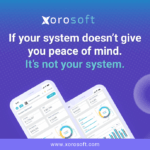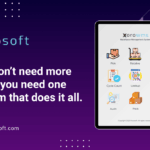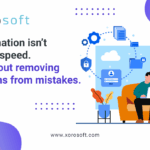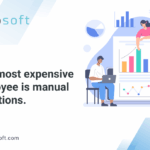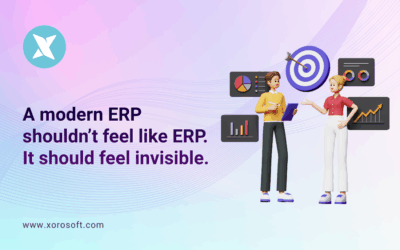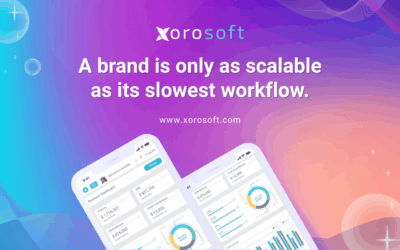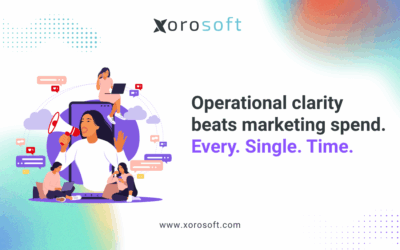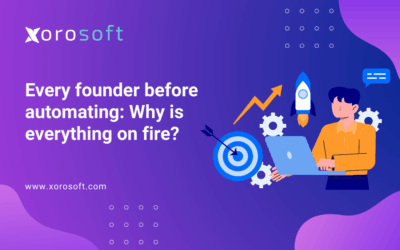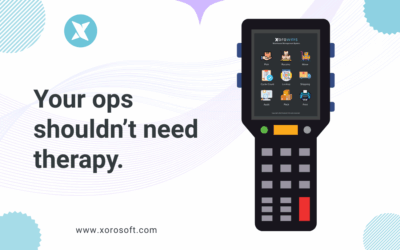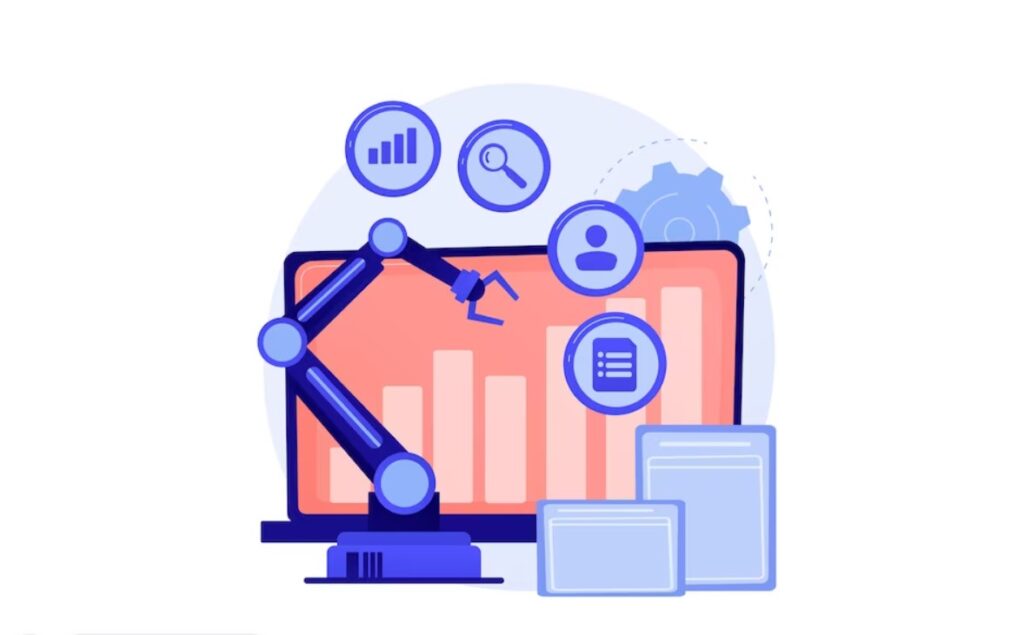
Introduction to ERP systems
In today’s fast-paced and data-driven world, government organizations are constantly seeking ways to enhance efficiency and accountability in their processes. One powerful solution that has revolutionized government processes is the implementation of Enterprise Resource Planning (ERP) systems. ERP systems offer a comprehensive suite of integrated software applications that enable government agencies to streamline their operations, automate tasks, and improve data accuracy. In this article, we will explore the benefits of implementing an ERP system in government processes, with a focus on the role of Xorosoft ERP in driving this transformation.
Benefits of implementing an ERP system in government processes
Implementing an ERP system in government processes brings numerous benefits that contribute to increased efficiency and accountability. One of the key advantages is the ability to centralize and standardize data across various departments and functions. With an ERP system, information such as citizen records, financial data, and procurement details can be consolidated into a single, unified database. This eliminates the need for multiple data entry points, reduces the risk of errors, and enables real-time access to accurate and up-to-date information.
Furthermore, an ERP system provides government agencies with a holistic view of their operations, enabling them to make informed decisions. By integrating different modules such as finance, human resources, and procurement, an ERP system allows for seamless communication and collaboration between departments. This eliminates silos and promotes cross-functional visibility, leading to better coordination and resource allocation. Additionally, the system generates comprehensive reports and analytics, providing valuable insights for strategic planning and policy-making.
The role of Xorosoft ERP in revolutionizing government processes
Xorosoft ERP is a leading provider of ERP solutions specifically designed for government organizations. With its robust and scalable platform, Xorosoft ERP has played a pivotal role in revolutionizing government processes worldwide. The software offers a wide range of modules tailored to the unique needs of government agencies, including finance, procurement, human resources, and asset management.
One of the key strengths of Xorosoft ERP is its ability to streamline inventory management. Government agencies often deal with a vast array of assets, ranging from office supplies to heavy machinery. Managing these assets efficiently can be a daunting task, but Xorosoft ERP simplifies the process. The system allows for real-time tracking of inventory levels, automates reordering processes, and provides insights into asset utilization. This not only reduces the risk of stockouts and overstocking but also optimizes resource allocation and budget planning.
Streamlining inventory management with an ERP solution
In today’s fast-paced and data-driven world, efficient inventory management is essential for government organizations. An ERP solution like Xorosoft ERP provides the tools and capabilities needed to streamline inventory management processes, leading to increased efficiency and cost savings.
With Xorosoft ERP, government agencies can automate key inventory management tasks such as tracking stock levels, generating purchase orders, and managing supplier relationships. The system provides real-time visibility into inventory levels, allowing agencies to make informed decisions about stock replenishment and allocation. By automating these processes, government organizations can significantly reduce the risk of stockouts and overstocking, ensuring that they have the right inventory at the right time.
Furthermore, Xorosoft ERP offers advanced analytics and reporting capabilities that enable government agencies to optimize their inventory management strategies. The system generates comprehensive reports on inventory turnover, stock aging, and supplier performance. These insights help agencies identify trends, make data-driven decisions, and negotiate better deals with suppliers. By optimizing inventory levels and improving supplier relationships, government organizations can achieve significant cost savings and enhance their overall operational efficiency.
Enhancing accountability through ERP systems in government accounting
Accountability is a cornerstone of good governance, and ERP systems play a crucial role in enhancing accountability in government accounting processes. With Xorosoft ERP, government agencies can ensure transparency, accuracy, and compliance in their financial management.
One key feature of Xorosoft ERP is its robust financial management module. The system automates core accounting processes such as budgeting, expense tracking, and reporting. By centralizing financial data and automating these processes, Xorosoft ERP eliminates the risk of errors and fraud associated with manual data entry. This enhances the accuracy and reliability of financial information, enabling government agencies to make informed decisions based on real-time data.
Moreover, Xorosoft ERP provides comprehensive audit trails and controls that promote accountability. The system tracks every financial transaction, ensuring that all actions are recorded and traceable. This not only facilitates internal auditing but also enables government agencies to comply with regulatory requirements and standards. With Xorosoft ERP, government organizations can demonstrate transparency and accountability in their financial management, fostering trust among stakeholders and the public.
Key features of Xorosoft ERP for government processes
Xorosoft ERP offers a comprehensive suite of features specifically designed for government processes. Some key features include:
- Finance Management: Xorosoft ERP provides advanced financial management capabilities, including budgeting, expense tracking, and reporting. The system ensures accuracy, transparency, and compliance in government accounting processes.
- Procurement: With Xorosoft ERP, government agencies can automate procurement processes, from requisition to payment. The system streamlines vendor management, contract management, and purchasing decisions, leading to cost savings and efficiency.
- Human Resources: Xorosoft ERP offers modules for human resources management, including employee records, payroll, and performance management. The system automates HR processes, reduces administrative burdens, and improves employee productivity.
- Inventory Management: Xorosoft ERP simplifies inventory management by providing real-time visibility into stock levels, automating reordering processes, and optimizing resource allocation. The system helps government agencies avoid stockouts, overstocking, and wastage.
- Analytics and Reporting: Xorosoft ERP generates comprehensive reports and analytics, providing valuable insights for strategic planning, policy-making, and performance monitoring. The system enables data-driven decision-making and continuous improvement.
Choosing the right ERP system for your government organization
When selecting an ERP system for your government organization, it is essential to consider several factors to ensure a successful implementation. Here are some key considerations:
- Scalability: Choose an ERP system that can accommodate the growth and evolving needs of your organization. Ensure that the system can handle increasing volumes of data and users without compromising performance.
- Customization: Look for an ERP system that offers flexibility and customization options. Government processes often have unique requirements and regulatory compliance needs. The ability to tailor the system to your specific needs is crucial for a successful implementation.
- Integration: Consider the compatibility of the ERP system with existing software solutions and infrastructure. Seamless integration with other systems such as legacy software, document management, and communication tools is essential for data consistency and efficiency.
- Vendor Support: Evaluate the level of support provided by the ERP vendor. Ensure that the vendor offers comprehensive training, technical assistance, and ongoing support to ensure a smooth implementation and optimal system performance.
By carefully evaluating these factors and selecting the right ERP system, government organizations can maximize the benefits of implementing an ERP system and drive efficiency and accountability in their processes.
The future of ERP systems in government processes
As technology continues to evolve, ERP systems are expected to play an even more significant role in revolutionizing government processes. The future of ERP systems in government holds tremendous potential for increased efficiency, transparency, and citizen-centric services.
One key trend is the adoption of cloud-based ERP solutions. Cloud-based ERP systems offer numerous advantages, including scalability, accessibility, and cost-effectiveness. Government agencies can leverage the cloud to store and manage their data securely, collaborate across departments, and provide mobile access to information. Cloud-based ERP systems also enable seamless integration with emerging technologies such as artificial intelligence and machine learning, further enhancing operational efficiency and decision-making.
Another emerging trend is the integration of ERP systems with Internet of Things (IoT) devices. IoT devices can provide real-time data on various aspects such as infrastructure, utilities, and transportation. By integrating IoT data with an ERP system, government agencies can gain valuable insights for proactive decision-making, predictive maintenance, and resource optimization.
Furthermore, the future of ERP systems in government processes will likely focus on citizen-centric services. With the increasing demand for personalized and efficient public services, ERP systems will play a vital role in enabling government agencies to deliver seamless and responsive services. By integrating ERP systems with customer relationship management (CRM) solutions, government organizations can gain a holistic view of citizens’ needs, preferences, and interactions. This enables personalized service delivery, improved citizen engagement, and enhanced satisfaction.
Conclusion
In conclusion, ERP systems have revolutionized government processes by enhancing efficiency and accountability. Xorosoft ERP, with its comprehensive suite of modules and tailored features, has played a crucial role in driving this transformation. By streamlining inventory management, enhancing accountability in government accounting, and providing advanced analytics, Xorosoft ERP has enabled government organizations to optimize their operations and make informed decisions.
As the future of ERP systems in government processes unfolds, it is essential for government organizations to choose the right ERP system that aligns with their needs and goals. By carefully evaluating factors such as scalability, customization, integration, and vendor support, government agencies can maximize the benefits of implementing an ERP system and drive efficiency and accountability in their processes.
To experience the transformative power of Xorosoft ERP in your government organization, book a demo with us today and embark on a journey towards enhanced efficiency and accountability.
